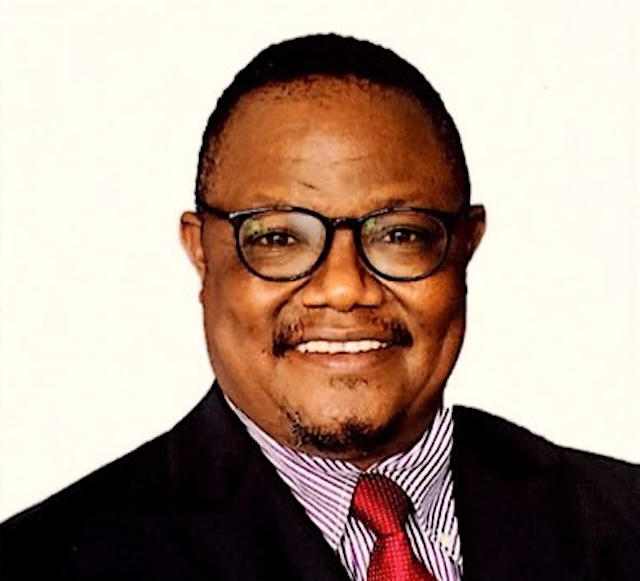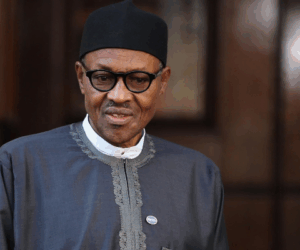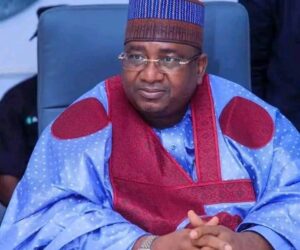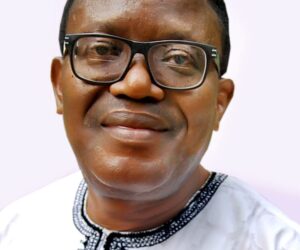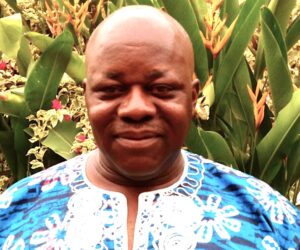
To my fellow Tanzanians: I may be behind prison walls, but my voice is not silenced. Our fight is just. We are not criminals; we are patriots. Those who steal elections, muzzle dissent, and shoot their opponents are the real traitors to the nation… CHADEMA’s campaign — No Reforms, No Election — is not a threat to the Republic. It is the Republic’s salvation. Without reforms, 2025 will bring only another rubber-stamp election, another five years of authoritarianism. With reforms, Tanzania can yet reclaim its democratic promise.
A Life in the Firing Line
On 9 April, I was arrested in Mbinga, in Tanzania’s deep south, and hauled overnight more than a thousand kilometres to Dar es Salaam. By dawn, I was arraigned on the gravest charge in our law: treason; an offence punishable by death. For 131 days, and counting, I have sat in a maximum-security cell on death row at Ukonga Central Prison, accused not of violence, but of words spoken in public — words demanding democratic reform.
This is not merely my trial. It is a trial of Tanzania’s democracy itself.
I was born in Mahambe village in 1967, the seventh of ten children of a peasant family. From the dusty plains of Singida, I rose to become a lawyer, legislator, and the leader of Chama cha Demokrasia na Maendeleo (CHADEMA), Tanzania’s largest opposition party. Along the way, I survived assassination attempts, endured dozens of arrests, and stood trial repeatedly for crimes I did not commit.
My career has been a running battle with those who wield power in Dar es Salaam and Dodoma. I have exposed the killings of artisanal miners at Bulyanhulu. I have fought for Maasai herders driven from ancestral lands. I have challenged authoritarian presidents in parliament and on the streets. Each time, the state has answered not with dialogue, but with bullets, batons, and bogus charges.
In 2017, unidentified gunmen pumped 16 bullets into my body at point-blank range outside my official residence. I was airlifted to Nairobi and later to Belgium, where doctors performed 25 surgeries to keep me alive. I carry the scars still. The state has never investigated the attack. No arrests, no trial, no accountability. In Tanzania, when the government is guilty, it is the victims who are punished.
The Crime of Speaking Out
What is my crime today? On 3 April, I addressed a gathering of CHADEMA members in Dar es Salaam. I declared what millions of Tanzanians know to be true: there will be no legitimate election in 2025 without fundamental reforms to our broken electoral system. I called for civil resistance against a rigged process. The speech was livestreamed. It was not secret. It was not violent. It was a public political statement.
For this, prosecutors now allege I committed treason — on the grounds that urging citizens to obstruct a fraudulent election amounts to intimidating the executive branch of government. The absurdity is obvious. Treason is a crime of betrayal, conspiracy, and armed insurrection. Obstructing a sham election is not treason; it is the essence of democracy.
Yet in Tanzania today, to demand reform is to be branded a traitor.
Lawfare: The New Weapon of Dictatorship
This is not a prosecution. It is lawfare: the deliberate weaponisation of the criminal justice system to destroy political opponents under a veneer of legality.
From independence, Tanzania has endured three previous treason trials. Each bore the hallmarks of authoritarianism. Today’s trial, the fourth, is no different. The charges are legally defective. The alleged acts do not constitute treason under our Penal Code. The prosecution’s case consists entirely of witness statements repeating the words I spoke — words never denied, words openly broadcast. Mere speech is not an “overt act” of treason.
But the law is not the point. The point is to paralyse CHADEMA and frighten the public into silence. Within weeks of my arrest, the Registrar of Political Parties — an appointee of President Samia Suluhu Hassan — declared our party secretariat unlawfully constituted. A High Court judge, another presidential appointee, issued an injunction halting CHADEMA’s political activities. The so-called Independent Electoral Commission decreed that because we refused to sign its partisan “code of ethics,” we are barred from elections for five years. This is not law. It is political assassination by other means.
…the world is watching. The European Parliament has condemned this trial. The African Commission on Human and Peoples’ Rights has denounced the repression of rallies and arrests of activists. Former chief justices of Kenya have attempted to observe proceedings, only to be deported. Diplomats from across Africa and Europe sit in the courtroom daily, because they know what is at stake: Not just Tanzania’s future, but the precedent it sets for democracy across Africa.
From Magufuli to Samia: Continuity of Repression
When John Magufuli came to power in 2015, he unleashed a reign of terror. Opposition rallies were banned. Journalists were jailed. Security forces killed protesters with impunity. I was arrested eight times in fifteen months. And then came the bullets of 7 September, 2017.
When Magufuli died in 2021, hope flickered that Samia Suluhu Hassan would reverse course. She promised dialogue, reconciliation, “maridhiano.” She lifted the ban on rallies. She invited exiles to return. I met her in Brussels in 2022; she assured me of my safety. On that basis, I returned home.
But promises proved hollow. Instead of reform, Samia perfected Magufuli’s methods: repression draped in softer language, persecution disguised as procedure. Where Magufuli ruled with brute force, Samia rules with legal subterfuge. The result is the same: opposition silenced, democracy strangled, the will of the people denied.
Why This Trial Matters
The stakes go beyond my life or freedom. At issue is whether Tanzania will continue sliding into a one-party state under the fig leaf of elections.
Treason is punishable by death. The government seeks nothing less than to execute not only a man, but an idea: the idea that Tanzanians deserve free and fair elections, accountable leaders, and a state governed by law, not by presidential whim.
But the world is watching. The European Parliament has condemned this trial. The African Commission on Human and Peoples’ Rights has denounced the repression of rallies and arrests of activists. Former chief justices of Kenya have attempted to observe proceedings, only to be deported. Diplomats from across Africa and Europe sit in the courtroom daily, because they know what is at stake: Not just Tanzania’s future, but the precedent it sets for democracy across Africa.
If opposition leaders can be tried for treason simply for calling out rigged elections, then no dissident is safe, anywhere.
My Message to Tanzanians
To my fellow Tanzanians: I may be behind prison walls, but my voice is not silenced. Our fight is just. We are not criminals; we are patriots. Those who steal elections, muzzle dissent, and shoot their opponents are the real traitors to the nation.
CHADEMA’s campaign — No Reforms, No Election — is not a threat to the Republic. It is the Republic’s salvation. Without reforms, 2025 will bring only another rubber-stamp election, another five years of authoritarianism. With reforms, Tanzania can yet reclaim its democratic promise.
Do not be intimidated. Do not be deceived. The Constitution belongs to the people, not to CCM. Sovereignty belongs to you, not to the ruling elite. Treason is not demanding change; treason is clinging to power against the people’s will.
…the spirit of freedom cannot be executed. The bullets of 2017 did not silence me. Prison walls will not silence me. And death, should it come, will not silence the cause of democracy in Tanzania… “No Reforms, No Election” is not a slogan. It is a line in the sand. It is the demand of a people who refuse to be governed without their consent. It is the rallying cry of a nation that will not surrender to fear.
My Message to the World
To Africa, to Europe, to America, to all who claim to defend democracy and human rights: Tanzania is a frontline. What happens here will echo beyond our borders.
If you remain silent, you license repression. If you treat Samia’s government as just another partner in trade and aid, you embolden the lawfare that is spreading across the continent. Already, authoritarian leaders are watching this trial, calculating how they too can criminalise opposition under the cloak of legality.
Stand with us now. Insist on reforms. Condition aid on respect for rights. Support civil society and independent media. Observe, document, and publicise these proceedings. Make it clear that democracy in Tanzania is not an internal affair but a regional and global concern.
The Verdict of History
Whatever verdict the High Court delivers, history will render its own. Courts can be bent, witnesses intimidated, laws twisted. But truth endures.
History remembers not the tyrants who clung to power through violence and deceit, but the men and women who dared to resist them. If I must sit in a cell, so be it. If I must die, so be it. But let the world know: I died demanding democracy, not betraying it.
For the government, this case is about my silence. For me, it is about Tanzania’s future. And for the world, it is a test: will you stand with a people’s right to freedom, or with a regime’s appetite for domination?
Conclusion: No Reforms, No Election
Tanzania stands at a crossroads. The treason trial of an opposition leader for speaking the truth about a rigged system is the clearest signal yet: our democracy is on life support.
But the spirit of freedom cannot be executed. The bullets of 2017 did not silence me. Prison walls will not silence me. And death, should it come, will not silence the cause of democracy in Tanzania.
“No Reforms, No Election” is not a slogan. It is a line in the sand. It is the demand of a people who refuse to be governed without their consent. It is the rallying cry of a nation that will not surrender to fear.
Tanzania deserves better. Africa deserves better. The world deserves better. And together, we will win it.
Tundu Lissu is a Tanzanian lawyer, anti-corruption activist and politician, who is the chairman of the country’s leading opposition political party, CHADEMA.

